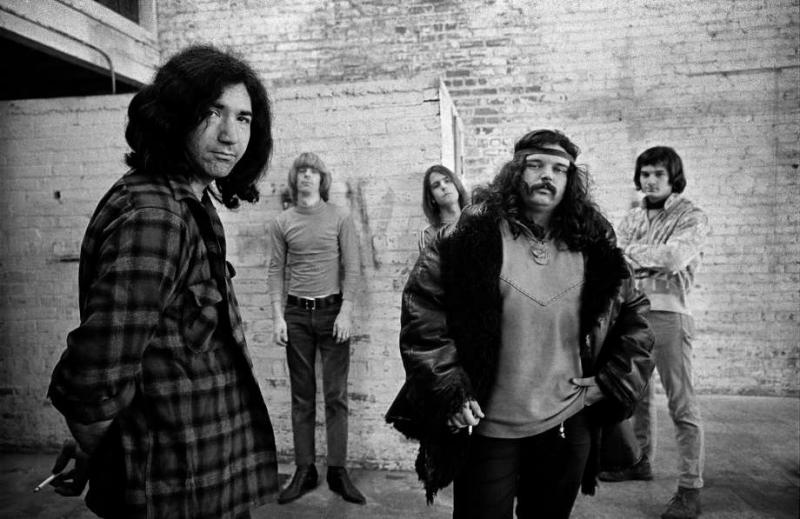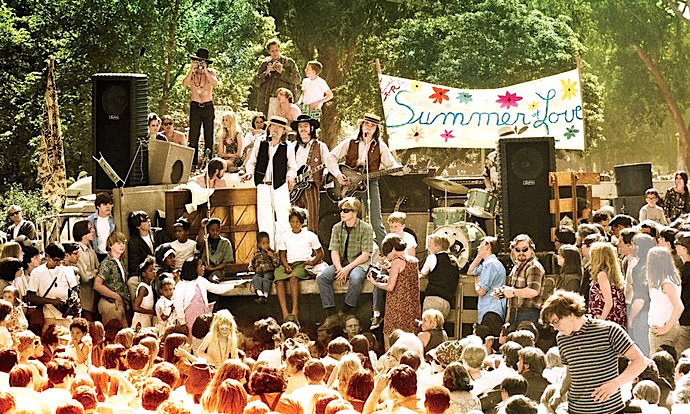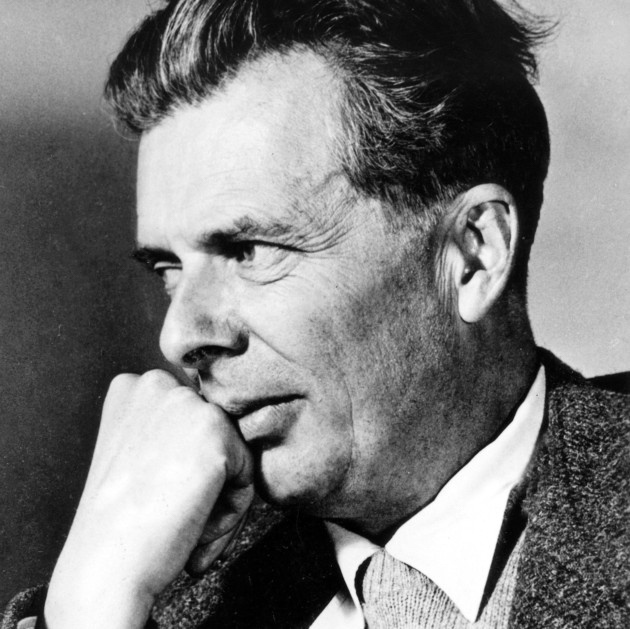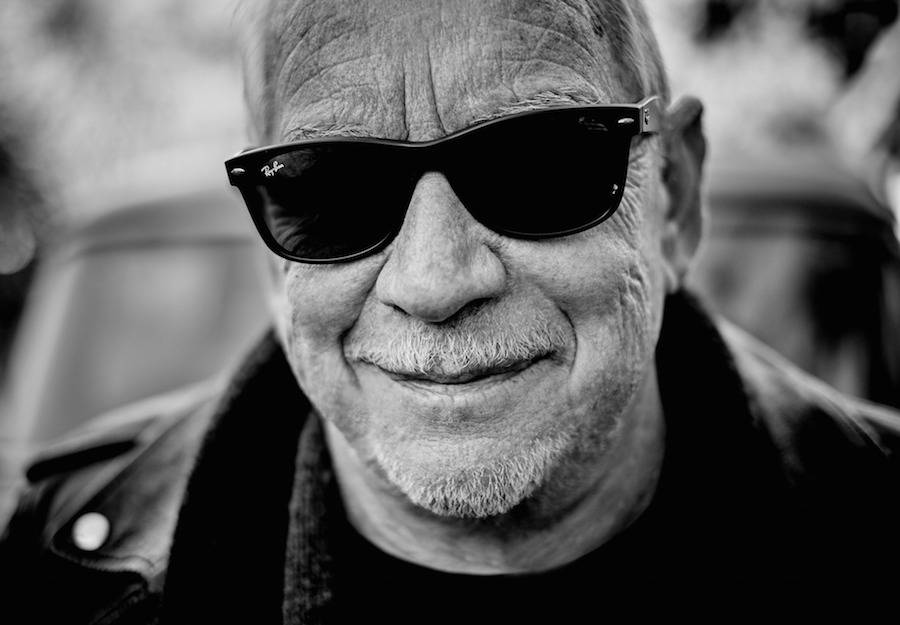Summer of Love: How Hippies Changed the World review - the weird and wonderful roots of the Sixties counterculture | reviews, news & interviews
Summer of Love: How Hippies Changed the World review - the weird and wonderful roots of the Sixties counterculture
Summer of Love: How Hippies Changed the World review - the weird and wonderful roots of the Sixties counterculture
BBC Four reveals the secrets of the mind-expanding summer of '67

As the accompanying music reminded us, it's the time of the season for looking back in languor at the psychedelic daze that descended on America's West Coast in 1967. It was an era when one was enjoined, if going to San Francisco, to "be sure to wear flowers in your hair".
However, the scope of this first of two programmes was much wider, and far more interesting, than a mere survey of the rock groups of the day. It went back to the beginning of the 20th century and travelled both east and west as it sketched out the philosophical and cultural influences that eventually manifested themselves in massed hippiedom (below, Golden Gate Park, 1967).
 Who knew – well, you would have done if you'd read the preview in Radio Times, but no matter – that the hippie dawn could be traced back to a cult of German "nature boys" (or Naturmensch) who were lured to the idyllic climes of California before World War One, and lived on fruits and berries in the wilderness? One of them opened the Health Hut, the first health food store in San Francisco. Another, Eden Ahbez, wrote their theme song, "Nature Boy", memorably recorded by Nat King Cole. There was a photo of Rudolf Valentino visiting the Boys in their rustic lair.
Who knew – well, you would have done if you'd read the preview in Radio Times, but no matter – that the hippie dawn could be traced back to a cult of German "nature boys" (or Naturmensch) who were lured to the idyllic climes of California before World War One, and lived on fruits and berries in the wilderness? One of them opened the Health Hut, the first health food store in San Francisco. Another, Eden Ahbez, wrote their theme song, "Nature Boy", memorably recorded by Nat King Cole. There was a photo of Rudolf Valentino visiting the Boys in their rustic lair.
Other inputs included the weird occult ramblings of Aleister Crowley, which included Satanism, eastern mysticism and free love and inspired the so-called "free thinkers" (Crowley later got his picture included on the sleeve of Sgt Pepper). It was Crowley who gave Aldous Huxley (pictured below) his first dose of mescaline, and Huxley's Doors of Perception would become a hippie set text, as well as giving Jim Morrison the name of his band. In the Fifties, Huxley lived at the Esalen Institute at Big Sur on the California coast, where mysticism, mind-body awareness and other New Agey stuff were the order of the day.
 Then LSD was added to the mix, and suddenly the word turned paisley. Ken Kesey, unwittingly dosed with acid as part of a CIA experiment, went on to write One Flew Over the Cuckoo’s Nest, and there was a clip of him saying he could never have written what he did if his mind hadn't been liberated by the drug. Aldous "Captain Trips" Huxley even got Cary Grant into LSD, for heaven’s sake, and on one occasion the suave thespian became convinced he’d turned into a giant penis being fired into space. Boiling up bespoke acid became the speciality of Berkeley dropout Owsley Stanley, and when folk musician Jerry Garcia was challenged by Kesey to create a musical soundtrack for the LSD experience, Garcia invented the Grateful Dead.
Then LSD was added to the mix, and suddenly the word turned paisley. Ken Kesey, unwittingly dosed with acid as part of a CIA experiment, went on to write One Flew Over the Cuckoo’s Nest, and there was a clip of him saying he could never have written what he did if his mind hadn't been liberated by the drug. Aldous "Captain Trips" Huxley even got Cary Grant into LSD, for heaven’s sake, and on one occasion the suave thespian became convinced he’d turned into a giant penis being fired into space. Boiling up bespoke acid became the speciality of Berkeley dropout Owsley Stanley, and when folk musician Jerry Garcia was challenged by Kesey to create a musical soundtrack for the LSD experience, Garcia invented the Grateful Dead.
Ferment was all around. Herbert Marcuse was teaching his own version of Marxism to radical yoof at Berkeley, where the feminist movement was experiencing its earliest stirrings. In nearby Oakland, the Black Panthers were exhibiting a focus and organisation most hippies were incapable of. Actor Peter Coyote had some splendid anecdotes about his time with the anarchist performance troupe the Diggers, who deplored property ownership and opened a shop where everything was free. (Coyote had to explain to a would-be shoplifter that you couldn’t steal what was being given away for nothing.)
 Intensely as they remembered it, it was as if the participants still couldn’t believe it had all really happened. The ecstatic exuberance of the moment reached a peak with the Monterey Pop Festival in June 1967, where the San Francisco bands met The Who, Hendrix and Otis Redding. Eric Burdon (rIght) admitted that “I really did think that LSD was the answer to the world’s problems.” Would that it had been so simple.
Intensely as they remembered it, it was as if the participants still couldn’t believe it had all really happened. The ecstatic exuberance of the moment reached a peak with the Monterey Pop Festival in June 1967, where the San Francisco bands met The Who, Hendrix and Otis Redding. Eric Burdon (rIght) admitted that “I really did think that LSD was the answer to the world’s problems.” Would that it had been so simple.
rating
Explore topics
Share this article
The future of Arts Journalism
You can stop theartsdesk.com closing!
We urgently need financing to survive. Our fundraising drive has thus far raised £49,000 but we need to reach £100,000 or we will be forced to close. Please contribute here: https://gofund.me/c3f6033d
And if you can forward this information to anyone who might assist, we’d be grateful.

Subscribe to theartsdesk.com
Thank you for continuing to read our work on theartsdesk.com. For unlimited access to every article in its entirety, including our archive of more than 15,000 pieces, we're asking for £5 per month or £40 per year. We feel it's a very good deal, and hope you do too.
To take a subscription now simply click here.
And if you're looking for that extra gift for a friend or family member, why not treat them to a theartsdesk.com gift subscription?
more TV
 Coldwater, ITV1 review - horror and black comedy in the Highlands
Superb cast lights up David Ireland's cunning thriller
Coldwater, ITV1 review - horror and black comedy in the Highlands
Superb cast lights up David Ireland's cunning thriller
 Blu-ray: The Sweeney - Series One
Influential and entertaining 1970s police drama, handsomely restored
Blu-ray: The Sweeney - Series One
Influential and entertaining 1970s police drama, handsomely restored
 I Fought the Law, ITVX review - how an 800-year-old law was challenged and changed
Sheridan Smith's raw performance dominates ITV's new docudrama about injustice
I Fought the Law, ITVX review - how an 800-year-old law was challenged and changed
Sheridan Smith's raw performance dominates ITV's new docudrama about injustice
 The Paper, Sky Max review - a spinoff of the US Office worth waiting 20 years for
Perfectly judged recycling of the original's key elements, with a star turn at its heart
The Paper, Sky Max review - a spinoff of the US Office worth waiting 20 years for
Perfectly judged recycling of the original's key elements, with a star turn at its heart
 The Guest, BBC One review - be careful what you wish for
A terrific Eve Myles stars in addictive Welsh mystery
The Guest, BBC One review - be careful what you wish for
A terrific Eve Myles stars in addictive Welsh mystery
 theartsdesk Q&A: Suranne Jones on 'Hostage', power pants and politics
The star and producer talks about taking on the role of Prime Minister, wearing high heels and living in the public eye
theartsdesk Q&A: Suranne Jones on 'Hostage', power pants and politics
The star and producer talks about taking on the role of Prime Minister, wearing high heels and living in the public eye
 King & Conqueror, BBC One review - not many kicks in 1066
Turgid medieval drama leaves viewers in the dark
King & Conqueror, BBC One review - not many kicks in 1066
Turgid medieval drama leaves viewers in the dark
 Hostage, Netflix review - entente not-too-cordiale
Suranne Jones and Julie Delpy cross swords in confused political drama
Hostage, Netflix review - entente not-too-cordiale
Suranne Jones and Julie Delpy cross swords in confused political drama
 In Flight, Channel 4 review - drugs, thugs and Bulgarian gangsters
Katherine Kelly's flight attendant is battling a sea of troubles
In Flight, Channel 4 review - drugs, thugs and Bulgarian gangsters
Katherine Kelly's flight attendant is battling a sea of troubles
 Alien: Earth, Disney+ review - was this interstellar journey really necessary?
Noah Hawley's lavish sci-fi series brings Ridley Scott's monster back home
Alien: Earth, Disney+ review - was this interstellar journey really necessary?
Noah Hawley's lavish sci-fi series brings Ridley Scott's monster back home
 The Count of Monte Cristo, U&Drama review - silly telly for the silly season
Umpteenth incarnation of the Alexandre Dumas novel is no better than it should be
The Count of Monte Cristo, U&Drama review - silly telly for the silly season
Umpteenth incarnation of the Alexandre Dumas novel is no better than it should be
 The Narrow Road to the Deep North, BBC One review - love, death and hell on the Burma railway
Richard Flanagan's prize-winning novel becomes a gruelling TV series
The Narrow Road to the Deep North, BBC One review - love, death and hell on the Burma railway
Richard Flanagan's prize-winning novel becomes a gruelling TV series

Add comment